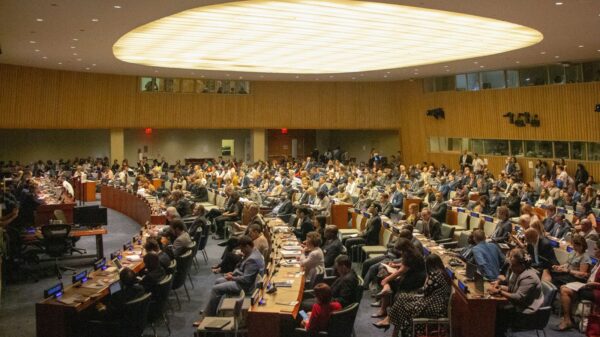This month would have marked the 50th anniversary of Roe v. Wade, the U.S. Supreme Court decision that declared abortion access a constitutional right. Instead of celebrating, people across the nation—including the nation’s capital—took to the streets to protest what is now the six-month anniversary of the overturning of this decision.
On Jan. 22, the Women’s March was held in Washington, D.C., in support of abortion rights. The Director of the Women’s March, Rachel O’Leary, voiced her opinion on the issue.
“We are talking about reproductive freedom and the criminalization of bodily autonomy. The role of a protest movement becomes critical as we begin to fight back against all these encroachments onto our rights and into our lives. The road to getting our rights back does not run through Washington D.C. Right now it’s in state by state battles, where we are winning every single time,” she said.
The anniversary followed the Supreme Court’s decision in Dobbs v. Jackson Women’s Health Organization, which ended the constitutional right to abortion. Before this, Roe v. Wade had stood within the nation for 49 years, and ensured that women were in control of their bodies.
“I just find it very crazy how I feel like, in society, we take one step forward and two steps backward. So, when they overturned it, I was very shocked and could not imagine the effect that it might have had,” Brooklyn Brown, a sophomore supply chain management major, said.
Due to the court’s decision, individual states were allowed to set the legal parameters regarding abortion access independently. The procedure is banned in 13 states, including Texas, Idaho, Louisiana, Mississippi, Oklahoma, Arkansas, Wisconsin, West Virginia, Kentucky, Montana and Alabama.
Melanie Jones, a journalism major, expressed her disappointment at the overturning decision and what she believes are people’s decreasing efforts to continuously fight.
“I feel like people are discouraged right now mainly because the news cycle is continuous. At first, when it was overturned there was a big uproar, and now people are moving on. You can see that in the number of people at the Women’s March event this past week,” Jones said.
According to O’Leary, there were over 200 marches this past year with thousands of people in attendance.
Research from the Kaiser Family Foundation, revealed that women of color are disproportionately affected by the recent restricted access to abortion due to limited healthcare access and travel barriers.
“I’m very glad that I was able to use my voice to help make a change and spread awareness. In addition, I was happy that I was able to show representation,” Brown said.
The Women’s March event was started in 2017 following the inauguration of the former president, Donald Trump. It is a women-led movement that fights for a social system that values the rights, safety and dignity of all.
“The decision marked a new era of American politics. Abortion care is basic health care. And women, particularly the women who are most impacted, you know, women for whom Roe was never enough to ensure access to abortion care and health care,” O’Leary said.
Women’s March and more organizations continue to fight for the reversal of the Supreme Court’s decision and will continue to plan events for the community to come together. The next planned event was “Dirty Dancing, Roe & the Future of Abortion” in Baltimore on Sunday, Jan. 29.
Copy edited by Chanice McClover-Lee













